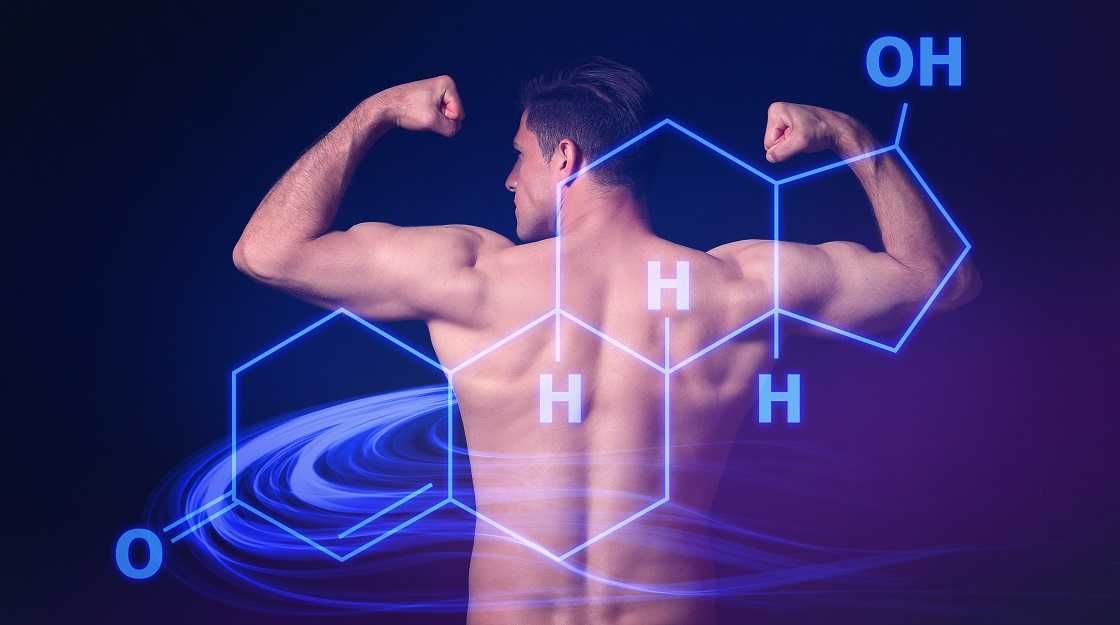Testosterone is a steroid hormone that plays a key role in muscle growth and development. It is primarily produced in the testes in males and the ovaries in females, although small amounts are also produced in the adrenal glands. Testosterone levels in the body can affect muscle mass, strength, and function.
Research has shown that there is a positive correlation between testosterone levels and muscle mass in men. A study published in the Journal of Clinical Endocrinology and Metabolism in 1996 found that older men with higher levels of testosterone had greater muscle mass compared to those with lower levels. Similarly, a study published in the Journal of Applied Physiology in 2001 found that men with higher levels of testosterone had greater muscle strength and endurance.
Testosterone also plays a role in muscle repair and recovery. It increases protein synthesis, which helps to repair and build muscle tissue. Additionally, it also decreases muscle breakdown, which can occur after intense exercise. A study published in the Journal of Clinical Endocrinology and Metabolism in 2000 found that older men with low levels of testosterone had a greater decline in muscle mass and strength compared to those with normal levels. Furthermore, a study published in the Journal of Gerontology: Medical Sciences in 2004 found that older men who received testosterone therapy had an increase in muscle mass and strength.
It is important to note that testosterone levels can decline with age, which can contribute to a decrease in muscle mass and strength. This decline in testosterone levels is known as andropause or “male menopause”. As we age, natural decline in testosterone levels can lead to decreased muscle mass, strength, and function. It is also important to note that low testosterone treatment can have potential side effects, such as acne, breast enlargement, and prostate cancer. Therefore, it is crucial to consult with a healthcare provider before starting testosterone therapy.
Explore: online TRT therapy.
In summary, research has shown that there is a positive correlation between testosterone levels and muscle mass in men. Testosterone plays a key role in muscle growth and development by increasing protein synthesis, which helps to repair and build muscle tissue. Additionally, it also decreases muscle breakdown, which can occur after intense exercise. However, testosterone therapy can have potential side effects and it is crucial to consult with a healthcare provider before starting testosterone therapy.
Low testosterone levels can negatively impact muscle mass and strength. Studies have shown that men with low levels of testosterone have a greater decline in muscle mass and strength compared to those with normal levels. This is because testosterone plays a key role in muscle growth and development by increasing protein synthesis, which helps to repair and build muscle tissue. Additionally, it also decreases muscle breakdown, which can occur after intense exercise. Testosterone affects muscle mass by promoting muscle growth and development. It increases protein synthesis, which helps to repair and build muscle tissue. Additionally, it also decreases muscle breakdown, which can occur after intense exercise. This results in an increase in muscle mass and strength.
Testosterone also affects your strength by increasing muscle mass and function. Studies have shown that men with higher levels of testosterone have greater muscle strength and endurance. This is because testosterone promotes muscle growth and development, which in turn improves muscle function. The benefits of testosterone for muscle mass are numerous. Testosterone promotes muscle growth and development, increases protein synthesis, decreases muscle breakdown, and improves muscle function. This results in an increase in muscle mass and strength.
Signs that you may need testosterone replacement therapy include:
- Low libido
- Erectile dysfunction
- Fatigue
- Depression
- Loss of muscle mass and strength
- Decreased bone density
- Increased body fat
- Hot flashes
It’s important to note that these symptoms can be caused by a variety of factors and it is always best to consult with a healthcare professional to determine the cause and appropriate treatment.
Understanding the relationship between testosterone levels and muscle mass can make a big difference in achieving your health and fitness goals. If you’re looking to take your muscle gains to the next level, consider consulting our team of board-certified experts at HRT Doctors Group. Schedule your appointment today and start your journey towards a stronger, healthier you.
